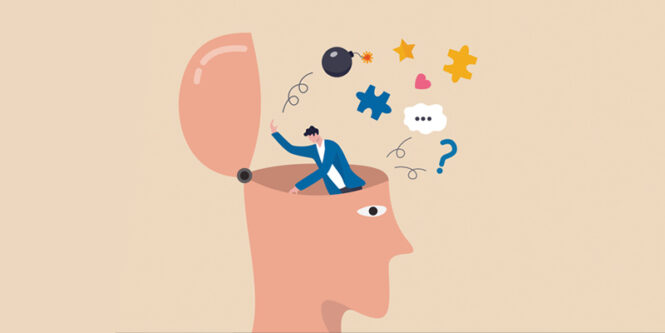In a fast-paced and increasingly stressful world, finding ways to prioritise our mental and physical health has become essential. One powerful practice that has gained significant attention is mindfulness. In this blog post, we will explore the benefits of mindfulness and how it can positively impact our overall well-being.
Understanding Mindfulness
This is a concept that originates from ancient contemplative traditions, particularly in Buddhism. It has gained significant popularity in recent years as a practice for promoting well-being and reducing stress. The core principles of this practice revolve around being fully present in the moment and cultivating an attitude of non-judgmental awareness towards our thoughts, feelings, and sensations.
One of the key elements of this practice is non-judgmental awareness. It means cultivating an attitude of observing our experiences without labelling them as good or bad, right or wrong. Instead of getting carried away by our habitual patterns of judgement, mindfulness invites us to acknowledge and accept our thoughts and emotions as they are, without attaching to or identifying with them. This non-judgmental stance helps us develop a greater sense of objectivity and compassion towards ourselves and others.
1. Mental Health Benefits of Mindfulness

This lifestyle practice, including meditation, have been extensively studied in the field of psychology and have shown numerous mental health benefits. Here are some scientific studies and research findings that highlight the impact of this practice on mental health:
Stress Reduction:
Mindfulness-based interventions have been shown to effectively reduce stress levels. In a study published in the Journal of Consulting and Clinical Psychology, participants who underwent an eight-week mindfulness-based stress reduction program experienced significant reductions in perceived stress, as well as improvements in overall psychological well-being compared to the control group.
Anxiety and Depression:
Mindfulness-based interventions have demonstrated positive effects in reducing symptoms of anxiety and depression. A meta-analysis of 39 studies, published in JAMA Internal Medicine, found that mindfulness-based therapy was moderately effective in reducing anxiety and depression symptoms across a range of populations. Additionally, a study published in the Archives of General Psychiatry found that mindfulness-based cognitive therapy was effective in preventing relapse in individuals with recurrent depression.
Emotional Resilience:
These practices have been shown to enhance emotional resilience, which refers to the ability to bounce back from adversity and cope with life’s challenges. Research published in the Journal of Personality and Social Psychology found that mind training increased self-reported emotional resilience in participants. Another study published in the Journal of Clinical Psychology demonstrated that mindfulness-based stress reduction improved emotional well-being and reduced emotional reactivity.
Improved Cognitive Functioning:
These practices have been associated with improvements in cognitive functioning, including attention, working memory, and cognitive flexibility. A study published in the journal Psychological Science found that this training enhanced working memory capacity in participants. Another study published in Frontiers in Human Neuroscience reported that brief meditation with this practice in mind, improved attention and cognitive performance.
Enhanced Psychological Well-being:
Mindfulness has been linked to improved overall psychological well-being and life satisfaction. A study published in the Journal of Happiness Studies found that individuals who engaged in this meditation had higher levels of subjective well-being and lower levels of psychological distress. Another study published in the Journal of Counseling Psychology showed that this practice was positively associated with life satisfaction and meaning in life.
It is important to note that while mindfulness-based interventions have shown promising results, they are not a substitute for professional mental health treatment. These practices can be used as a complementary approach alongside other evidence-based therapies for mental health conditions.
2. Physical Health Benefits of Mindfulness

While this lifestyle practice is often associated with mental health benefits, it also offers a range of lesser-known physical health benefits. Here are some ways in which implementing this lifestyle can positively impact physical well-being:
Improved Sleep Quality:
These practices have been found to promote better sleep quality. Research published in JAMA Internal Medicine showed that this meditation significantly improved sleep quality and reduced insomnia symptoms in individuals with sleep disturbances. By cultivating present-moment awareness and reducing rumination, mindfulness can help calm the mind and promote relaxation, leading to more restful sleep.
Reduced Blood Pressure:
Mindfulness-based interventions have been linked to reductions in blood pressure, a key indicator of cardiovascular health. A study published in the journal Hypertension found that mindfulness-based stress reduction was effective in reducing blood pressure in individuals with prehypertension. By reducing stress levels and promoting relaxation, these practices can contribute to better cardiovascular health.
Enhanced Immune Function:
Mindfulness practices have been associated with improved immune function. Research published in the journal Psychosomatic Medicine found that this meditation led to significant increases in antibody production in response to influenza vaccination. Another study published in the Annals of Behavioral Medicine showed that mindfulness-based stress reduction was associated with enhanced immune response in cancer patients. By reducing stress and supporting overall well-being, it can positively influence the immune system.
Better Pain Management:
The lifestyle practice has been found to be effective in managing chronic pain. It helps individuals develop a non-reactive and accepting attitude towards pain, reducing emotional reactivity and promoting pain coping strategies.
Mind-Body Connection and Overall Wellness:
It emphasises the connection between the mind and body, highlighting the holistic nature of well-being. By cultivating present-moment awareness, individuals become more attuned to their bodily sensations, emotions, and overall physical state. This heightened awareness allows for early recognition of signs of discomfort or stress, enabling individuals to take proactive steps to maintain their health and well-being.
3. Mindfulness for Personal Growth
By integrating mindfulness into daily life, individuals can develop a deeper understanding of themselves, cultivate self-compassion, and embark on a journey of personal growth and self-awareness. It fosters positive mindset shifts, transforms limiting beliefs, and promotes personal development by providing a foundation of present-moment awareness, acceptance, and intentional action.
4. Mindfulness in Digital Age

Practicing mindfulness in the digital age comes with unique challenges due to the pervasive presence of technology and its impact on our attention span. Here are some considerations and tips for incorporating mindful technology use:
Impact of Technology on Attention Span:
The constant availability of digital devices and the abundance of information online can contribute to shorter attention spans and increased distractibility. The quick and continuous stimulation provided by technology can make it difficult to cultivate sustained focus and presence. Recognizing this impact is the first step toward developing a more mindful relationship with technology.
Set Boundaries:
Establish clear boundaries for technology use to create space for the practice. Designate specific times or areas in your day where you intentionally disconnect from digital devices. For example, you can create device-free zones in your home, or dedicate the first and last hour of your day to be technology-free.
Practice Mindful Consumption:
Mindful technology use involves being intentional and aware of how you engage with digital content. Before consuming information, ask yourself if it aligns with your values and intentions. Notice how certain content affects your emotions and well-being. Consider practicing media mindfulness by consuming content mindfully, engaging in meaningful conversations, and being selective about the information you consume.
Mindful Communication:
Technology often serves as a platform for communication. Practice mindfulness in your digital interactions by being fully present and attentive during conversations. Listen actively, be aware of your tone and language, and cultivate empathy and understanding in your digital communications.
Digital Mindfulness Apps and Resources:
The digital age also provides opportunities to integrate this practice into technology itself. There are several mindfulness apps and resources available that can aid in building a consistent practice. Some popular apps include Headspace, Calm, Insight Timer, and Stop, Breathe & Think. These apps offer guided meditations, breathing exercises, and other mindfulness practices that can be accessed conveniently on digital devices.
Use Technology as a Mindfulness Tool:
Rather than being solely a source of distraction, technology can also be used as a tool to support your mindfulness practice. Set reminders on your phone to take mindful breaks throughout the day, use meditation timer apps to structure your practice, or access mindfulness podcasts, videos, or online courses for guidance and inspiration.
Remember that while technology can be a useful tool for mindfulness, it is essential to strike a balance and not rely solely on digital resources. Engaging in offline mindfulness practices, such as nature walks, mindful movement, or journaling, can complement your digital mindfulness activities.
The Wrap Up

Embracing mindfulness as a transformative practice can significantly enhance mental and physical well-being. By incorporating mindfulness into our lives, we prioritise self-care, manage stress more effectively, foster personal growth, and enhance our overall health. Mindfulness is a powerful tool that empowers us to live more fully and thrive in all aspects of life.
To further explore the benefits of mindfulness, consider joining our first aid course in Canberra. While this course may not specifically focus on mindfulness, it can complement your overall well-being journey by equipping you with essential skills to provide immediate care in emergencies. By combining mindfulness with first aid knowledge, you can enhance your ability to respond calmly and effectively in challenging situations, further promoting your own and others’ well-being.
 Imagup General Magazine 2024
Imagup General Magazine 2024



